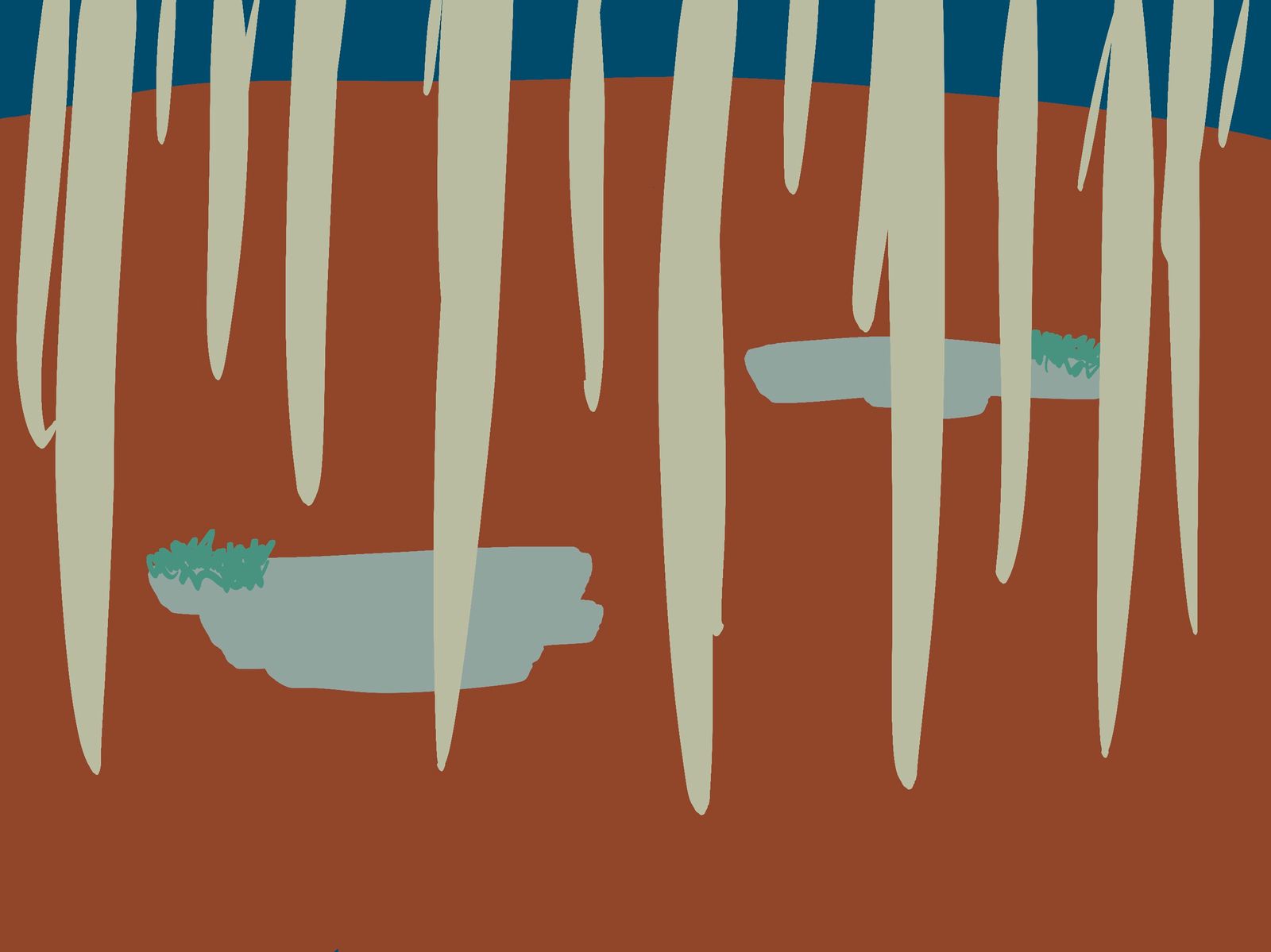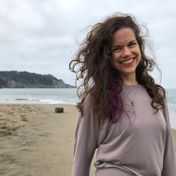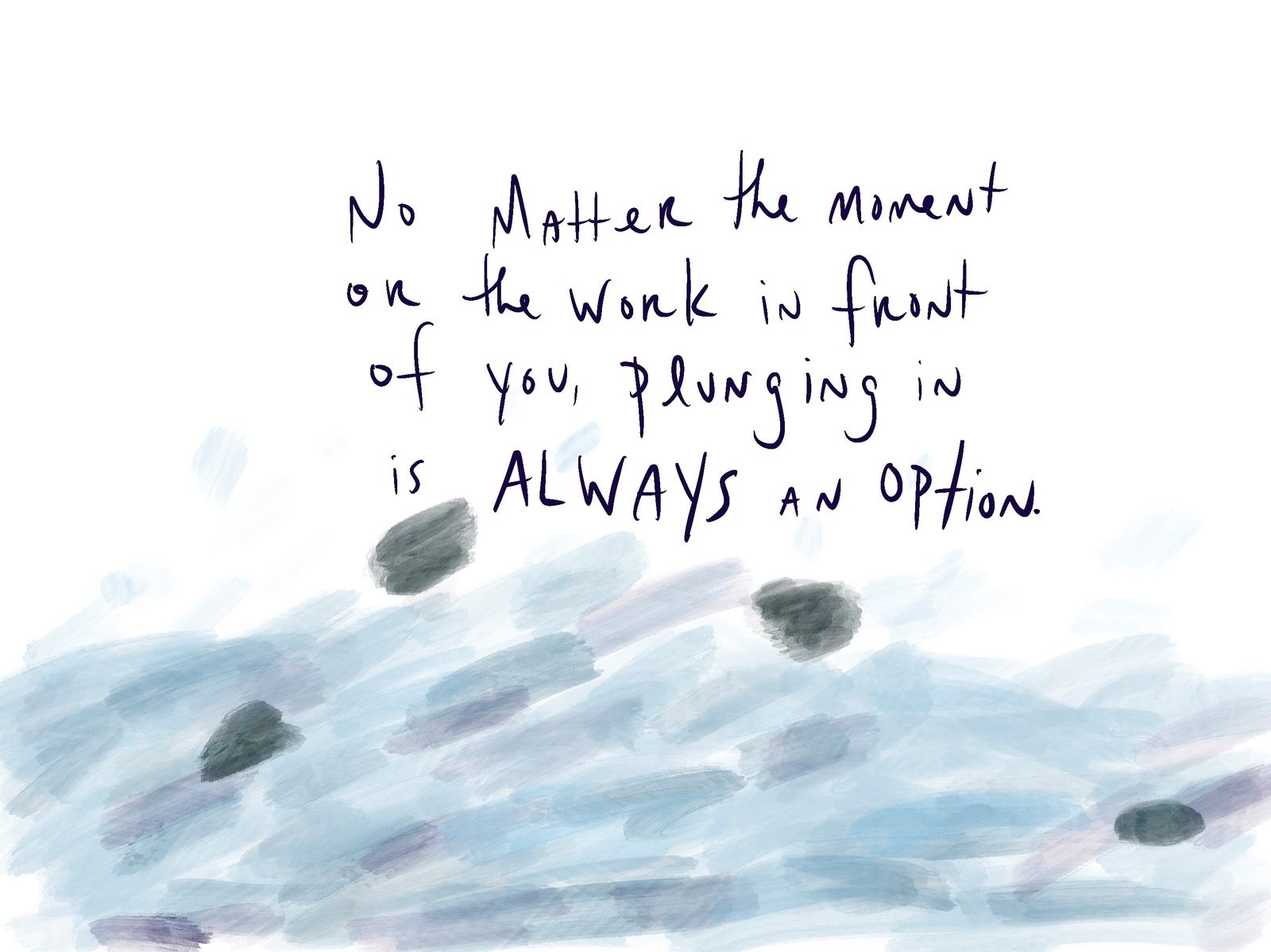I hiked with the children in the winter woods on Monday. With friends. A fellow mother and her children. We've been hiking together for years, for most of our children's lifetimes. The kids' ages align, they've been playing the same pretend game in different iterations for the last 4 years. They played it on the trail while we walk slowly. My niece, Nora, 4, walks beside me. Her hair is the color of blinding winter sunshine, white-blonde. Her face shows all the shades of her feelings. She has bones that break. Osteogenesis imperfecta. It's a long name for how she is both made and unmade.
"She's got a broken toe right now," her mother said when we invited her along. "She might go slow."
"We'll go at her pace," I promised, "we aren't in a hurry."
The truth is, I've been going slow along the trail for years.
Before the oldest son's arthritis was diagnosed, before we had a name for it and he'd cry and limp, we'd go slow along the trail. We wouldn't stop. We'd keep going. Fear makes you stop. Love beckons you onward. He kept going, you saw it in his eyes, how his determination would steel. He was going to keep going, he was going to see where the trail led.
So we went at his pace.
This friend who walked beside me through the bright winter sun that slots through the bare trees creating shadows that pave over our faces as we walk along, she's gone on those slow hikes with us. Years ago, she coaxed Connor across a rocky scramble over a blurbeling river near a waterfall. I sat on a boulder, nursing little girl. His arthritis was flaring, uncontrolled and unnamed through his body. Her sons frisked and leapt one boulder to another, across and back again.
Patiently, patiently, she coached Connor along, "Make your way. Look where you're going. Pick your next step and make your way." Soon he was on the other side, then back again. It wasn't long until he got lost in the climb, absorbed by the sound of the rushing river around him, the songbirds in the woods calling chick-a-dee-dee-dee, finding the next rock to take the next step. Soon he was doing it by himself. I watched, my baby curved against me, warm and snug. I watched my friend mother my son.
I think of this when we hike. Any time we hike. Especially with them. I still see his determination and her determined patience.
She went at his pace. She lent him her guidance and sturdiness until he could do it on his own.
Nora wanted to climb the big ridge. Like the big kids. Like her other cousins.
It would've been so easy to say, "careful, no don't. Not you. You can't do that."
One of Connor's physical therapists once told me that the only four letter word she ever heard was "can't."
You can see it in her eyes, the determination. She wants to climb the ridge, broken toe be damned.
So I go at Nora's speed. We climb the ridge together, we make a way. Choose our next steps carefully. Little girl, no longer a babe in arms, climbs with us, with slow determination, with intention. At Nora's speed. We climb passed small beech trees, with their translucent copper leaves, passed a loblolly pine that was struck by lightning and now hosts a family of grubs. Passed the white-paper seashell mushrooms that decompose wood—bitter oysters I know they're called. The sweet gum balls that were hard 2 months ago have softened, we crush them and watch the seeds float away on the wind. "I didn't know they did that," the girls say to each other. Their pockets fill up with treasures: smooth sticks that look like slingshots, leaves eaten and dried in such a way that they look like lace doilies. We're up so high, the river and it's cataracts change an octive. It's lower up here, we can talk without shouting. We're higher than the big boys, by a lot. The leaf litter under us sounds like crumbled newspapers and smells like what I think childhood must smell like: turned earth.
We have to get down. I'm not sure how I didn't think this through. Up, at first, seemed impossible. Now down seems more impossible.
Until the girls begin to toboggan, on their bottoms in the leaf litter. They slide slowly down, down, down, leaving a little trail behind them. Each time they stop, it is at a spot filled with chartruse moss, impossibly green in the browns and grays of winter. They feel it with their hands, every spot they can find on the descent.
"It is so soft. How is it so soft? Nora, feel this," Little Girl says.
At the bottom, there is my friend on an outcropping of granite, watching us, watching the big boys play at war. The girls sit beside one another. Sunshine the color of Nora's hair breaks over them. The river's voice is louder now, insistent. My friend snaps a picture.
Time to go home for lunch.
With the turning of the year, I am thinking ever so much about pace. About intention. I can so easily fall pray to this idea that I must accomplish something monumental. A big list, a big task or change: What's next? What do I want to do? There is such a pull to hurry.
But then I think of these children on the trail, limping along with wonder and relentless determination. About the mothers who take the time to patiently guide them there and back again—wherever it is they want to go. Across a river, up a ridge.
Love is patient.
Wendell Berry writes, "patience/joins time to eternity."
This year, I want to remember that a slow, determined pace, midwifed by patient guides and mentors, is a good pace.
Maybe the best pace. One that is full of wonder and possibility because there are no "can't's."
It'll get us to eternity.





